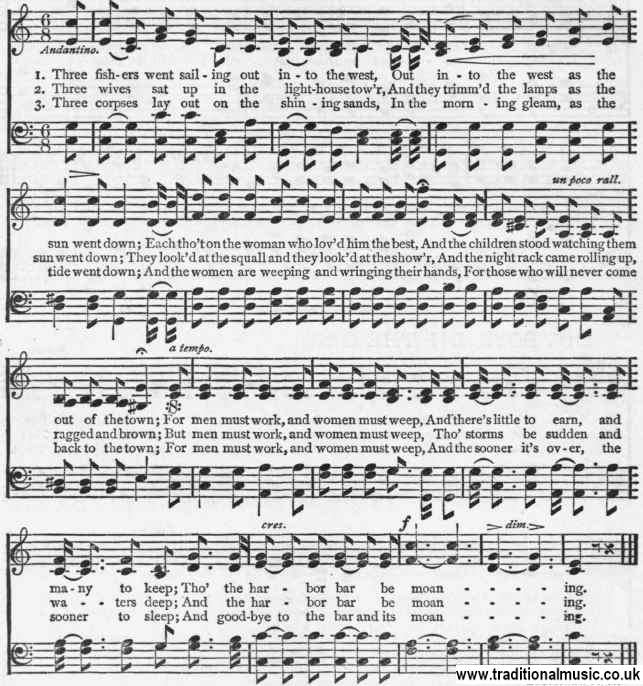Favorite Songs and Hymns For School and Home, page: 0204
450 Of The World's Best Songs And Hymns, With Lyrics & Sheet music for voice & piano.
| Share page | Visit Us On FB |
|
While word-music appeals to our intellect through its force of representation, instrumental music appeals directly to the emotions. The former ap�pears clad in shadowy generalities, and the latter arises in its primitive life-giving power. Music is of a lyrical nature, and therefore remains all-powerful where the expression of poetry ceases. Music can be an aid to poetry and can increase its effect on the ear and heart by means of melody, but it can also act independently, forming its theme from its own re�sources. In the former case it is hampered by the |
text and must conform itself to the pace of the stream of words. Its compass of tone is prescribed and its liberty restricted thereby. Instrumental music stands alone in its unapproachable sovereignty. In its lyric nature it unfolds the most tender, mysterious feelings hidden in the inmost depths of the human heart. The orchestral instruments are the highest means through which the composer expresses his genius, as well as the purest utterances of his soul in tender or powerful strains, representing the same in the form of a sym�phony. While in the opera the combination of song, |
||
|
THREE FISHERS. |
John Hullah. Charles Kingsley. |
||
 |
|||
|
poetry, decoration, acting, costumes, and orchestral effects produce an impression on the listener, and through their union take possession of the senses by their representations of the outer world, it is the sphere of pure instrumental music, of the symphony itself, to enter the recesses of the heart, and find an echo there where love, joy, friendship, sorrow, hope, and earnest striving reign supreme.�M. Steinhert. The author of "Three Fishers " was a noted poet, preacher and novelist of England. He was professor of moden history at Cambridge, afterwards Canon of |
Westminster and chaplain to the Queen. He died in 1875. During his boyhood his father was rector of a small parish on the sea-coast, from which he had often seen the herring fleet put out to sea. On these occasions it was customary to hold a short but impressive religious service on the quay, at which not only the fishermen, but also their wives, sweethearts and children were pre�sent. Recalling this scene vividly, at the close of a weary day, he wrote this touching poem, whose beauty is enhanced by the plaintive air to which it has been set by John Hullah, an English composer of reputation. |
||